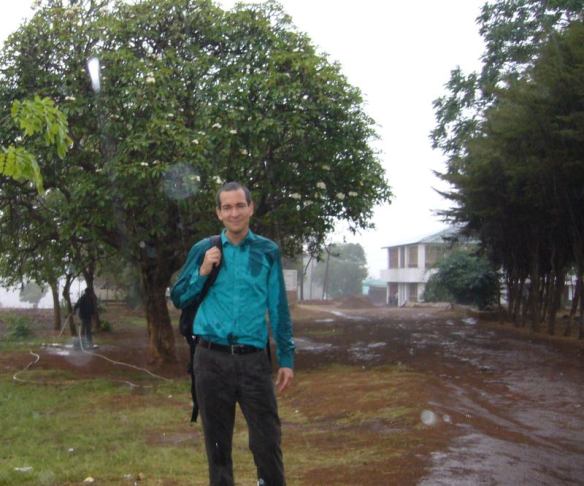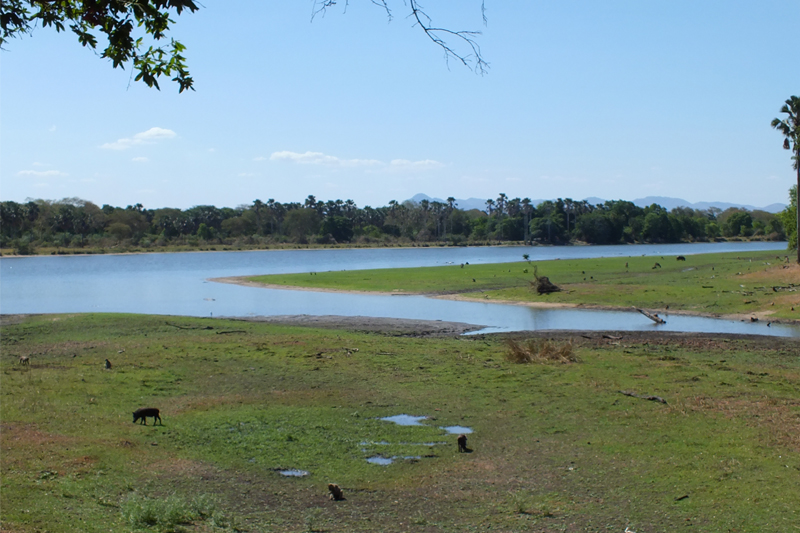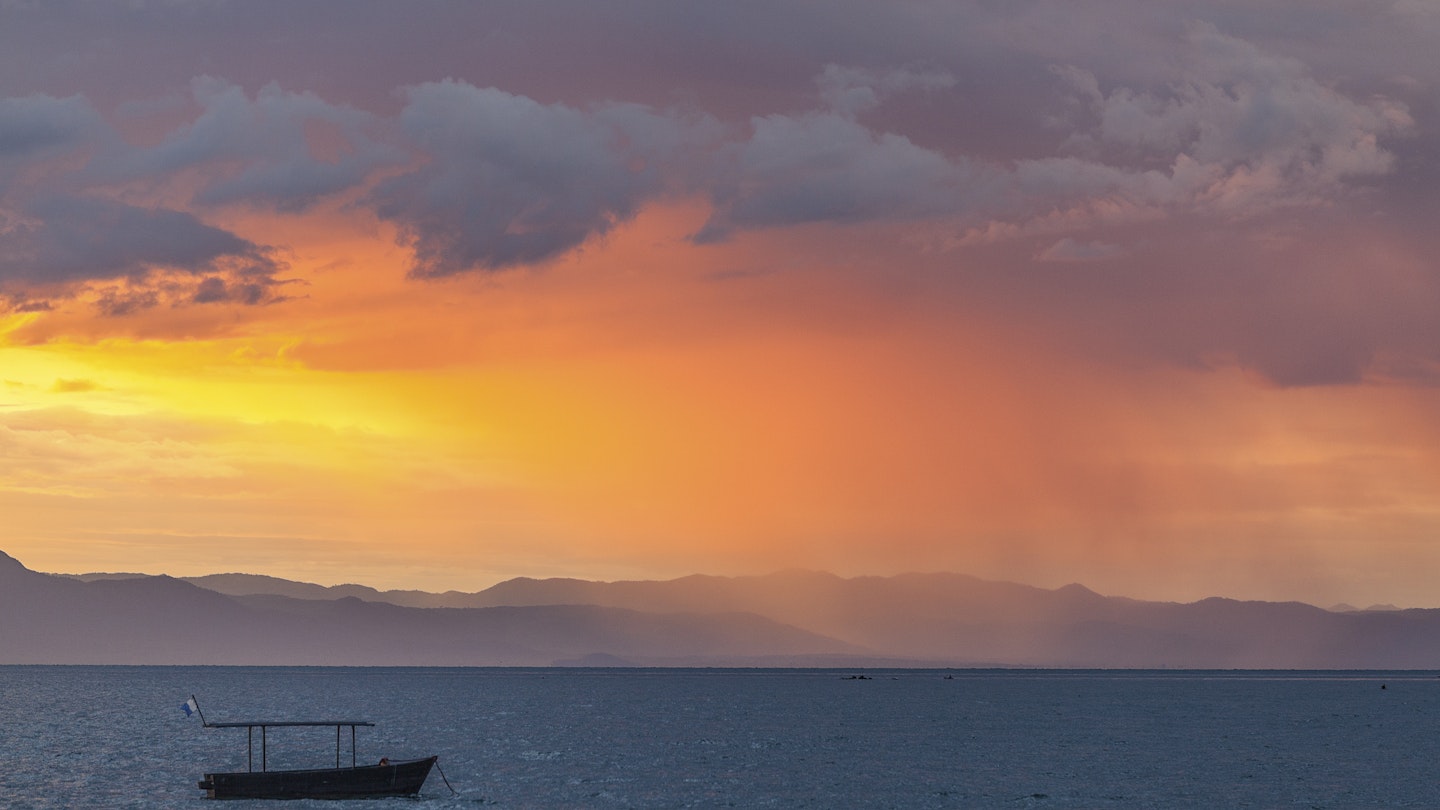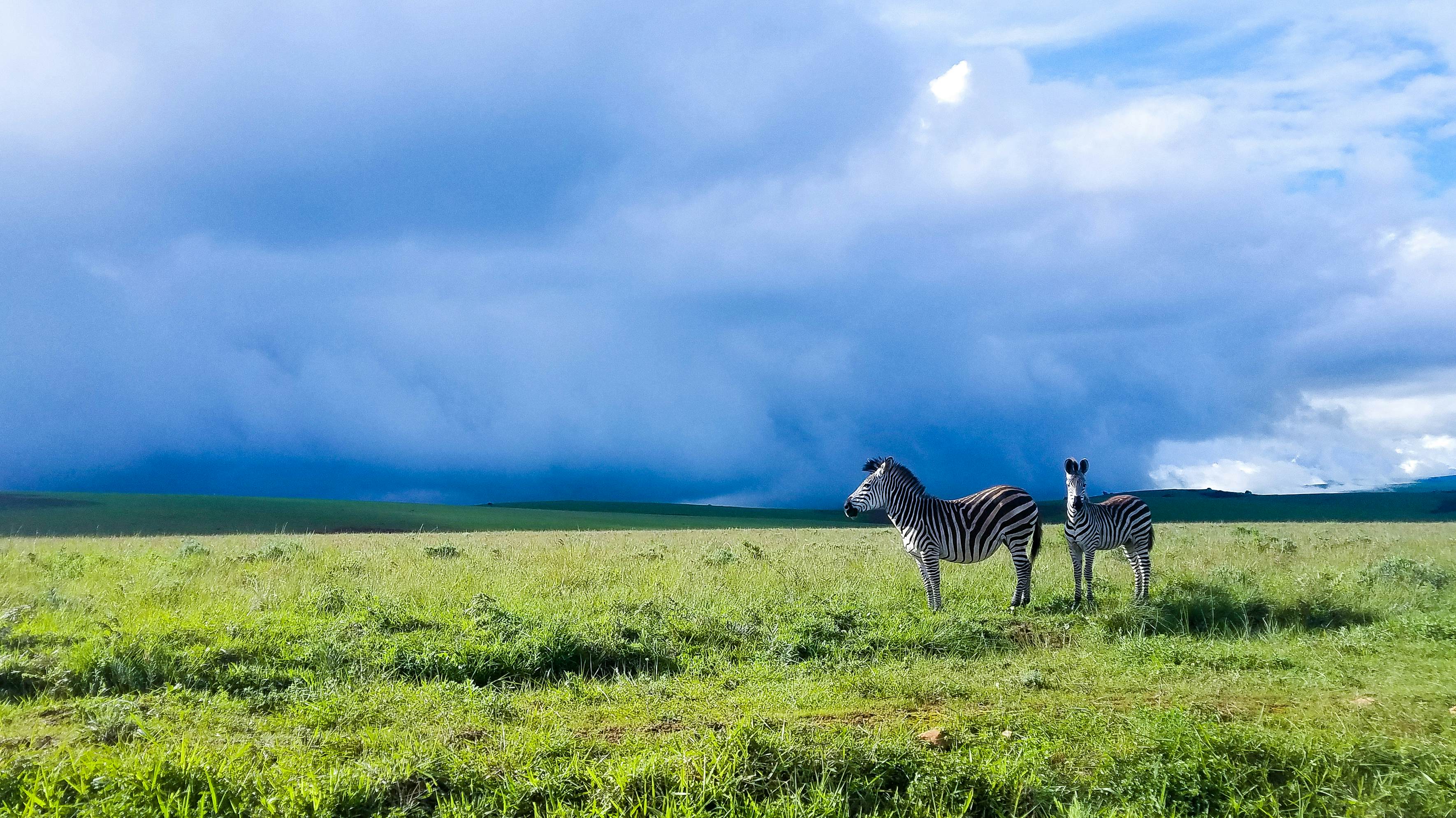Don't Get Caught in the Rain: Best Time for Malawi Bliss

Introduction
Malawi is a beautiful country located in southeastern Africa. It is known for its stunning landscapes, friendly people, and rich culture. Whether you are an adventure seeker or seeking a peaceful getaway, Malawi has something to offer everyone. In this blog, we will explore the different seasons in Malawi and the benefits of visiting during the dry season.
Rainy season in Malawi
The rainy season in Malawi typically starts in November and lasts until April. During this time, the country experiences heavy rainfall, making it a bit challenging to explore the outdoor attractions. However, the rainy season also brings lush green landscapes and vibrant flora. It is a great time for nature enthusiasts and birdwatchers as the bird population in Malawi is at its peak during this season. The lakes and rivers are also filled with water, providing opportunities for water-based activities such as boating and fishing.
Benefits of visiting Malawi during the dry season
The dry season in Malawi usually spans from May to October. This is considered the best time to visit as the weather is pleasant and ideal for outdoor activities. Here are some benefits of visiting Malawi during the dry season:
- Great wildlife sightings: The lack of vegetation during the dry season makes it easier to spot wildlife in national parks and game reserves. You have a higher chance of witnessing the famous Big Five (elephants, lions, leopards, rhinos, and buffalos) and other unique species.
- Water-based activities: The dry season is perfect for water-based activities like snorkelling, diving, and kayaking. The crystal-clear waters of Lake Malawi offer a unique opportunity to explore the diverse underwater world.
- Ideal for hiking and trekking: The dry season provides comfortable weather for hiking and trekking adventures. You can explore the stunning landscapes of Mount Mulanje or hike through the Nyika Plateau, one of Africa's largest high-altitude plateaus.
- Cultural festivals: Many traditional festivals occur during the dry season, offering a chance to experience the local culture and traditions. From the Gule Wamkulu dance festival to the Lake of Stars Music Festival, something is always happening in Malawi.
Malawi is a destination worth considering for your next vacation. Whether you choose to visit during the rainy season or the dry season, unique experiences are awaiting you. Plan accordingly and make the most of your time in this beautiful country.

Dry Season: May to October
Weather during dry season in Malawi
During the dry season in Malawi, which typically spans from May to October, you can expect pleasant weather with clear skies and comfortable temperatures. The average temperatures range from 20°C to 25°C (68°F to 77°F), making it the ideal time for outdoor activities and exploration. The humidity levels are also lower during this time, adding to the overall comfort.
Advantages of visiting Malawi during dry season
Visiting Malawi during the dry season offers a range of advantages that make it the perfect time to plan your trip. Here are some reasons why you should consider visiting Malawi during this period:
-
Spectacular wildlife sightings: With the decrease in vegetation during the dry season, spotting wildlife becomes easier. National parks and game reserves, such as Liwonde National Park and Majete Wildlife Reserve, provide excellent opportunities to witness the famous Big Five and other unique species up close and personal.
-
Water-based activities: The crystal-clear waters of Lake Malawi beckon visitors during the dry season. It's the perfect time to indulge in activities like snorkelling, diving, kayaking, and sailing. Explore the diverse underwater ecosystem and marvel at the colourful fish species that inhabit the lake.
-
Ideal for hiking and trekking: The dry season's comfortable weather creates the ideal conditions for hiking and trekking adventures. Notable destinations include Mount Mulanje, with its stunning landscapes and challenging trails, and the Nyika Plateau, one of Africa's largest high-altitude plateaus, offering breathtaking views and unique flora and fauna.
-
Rich cultural experiences: The dry season is also the time when many cultural festivals and events take place in Malawi. Immerse yourself in the vibrant local culture by attending festivals like the Tumbuka Dance Festival or the colourful celebrations of Malawi's Independence Day.
With its favourable weather and a plethora of activities and experiences, visiting Malawi during the dry season ensures a memorable and fulfilling vacation. Don't miss out on the opportunity to explore this beautiful country and all it has to offer.

Shoulder Season: November to February
Weather during shoulder season in Malawi
During the shoulder season in Malawi, which spans from November to February, the weather is generally warm and dry, with occasional rain showers. Temperatures range from 25°C to 30°C (77°F to 86°F), making it a pleasant time to visit. The humidity levels are relatively low, allowing for comfortable exploration and outdoor activities.
Reasons to consider visiting Malawi during shoulder season
If you're considering visiting Malawi, the shoulder season offers several advantages that make it worth considering. Here are a few reasons why you should plan your trip during this time:
- Less crowded attractions: During the shoulder season, popular tourist attractions in Malawi are typically less crowded compared to the peak season. This means you can enjoy a more intimate and less hectic experience when visiting places like Lake Malawi or the country's stunning national parks.
- Opportunities for birdwatching: Malawi is known for its rich birdlife, and the shoulder season presents an excellent opportunity for birdwatching enthusiasts. The country's diverse ecosystems provide a habitat for a wide variety of bird species, including the rare African rock martin and the vibrant Lilian's lovebird.
- Favourable prices: As the shoulder season falls outside the peak tourist period, you may find more affordable prices for accommodation and tour packages. Taking advantage of these cost savings can make your trip to Malawi more budget-friendly without compromising on the experience.
- Witnessing wildlife migrations: November to February is also the time when certain wildlife species in Malawi undergo their annual migrations. If you're lucky, you might witness large herds of elephants or other animals making their way across the savannah, creating a truly mesmerizing spectacle.
Visiting Malawi during the shoulder season allows you to enjoy the country's natural beauty and wildlife while experiencing a more relaxed and budget-friendly trip. Consider planning your visit during this time to make the most of all that Malawi has to offer.

Wet Season: March to April
Weather during wet season in Malawi
In Malawi, the wet season occurs from March to April. During this time, the weather is characterized by frequent rainfall and higher humidity levels. Temperatures range from 20°C to 25°C (68°F to 77°F), providing a cooler and more comfortable climate compared to the hotter months.
Challenges and considerations of visiting Malawi during wet season
While there are some advantages to visiting Malawi during the wet season, there are also a few challenges and considerations to keep in mind. Here are some factors to consider before planning your trip during this time:
- Increased rainfall: The wet season in Malawi is known for its rainfall, which can be heavy at times. This may limit outdoor activities and wildlife sightings, as animals tend to seek shelter during periods of heavy rain. It's important to be prepared for wet weather and plan accordingly.
- Potential road conditions: The rainy season can lead to muddy and slippery roads, which may affect travel plans and accessibility to certain areas, especially in more remote regions. It's advisable to check road conditions and consider hiring a 4x4 vehicle for better manoeuvrability.
- Mosquitoes and malaria risk: The wet season also brings an increase in mosquito activity, which may pose a higher risk of contracting malaria. It's essential to take necessary precautions, such as using mosquito repellent, wearing long sleeves and pants, and taking antimalarial medication.
- Limited visibility for diving and snorkelling: If you're planning on diving or snorkelling in Lake Malawi, the wet season may not be the best time to do so. The rainfall can affect water visibility, making it less ideal for underwater activities.
Despite the challenges, the wet season in Malawi also has its own unique charm. The landscape turns lush and green, and wildlife sightings can be more rewarding if you're lucky enough to spot animals amidst the rain. Additionally, accommodation and tour prices may be lower during this time, offering a more budget-friendly option.
While the wet season in Malawi may come with some challenges, it can still be a great time to visit if you're prepared and willing to embrace the weather conditions. Just make sure to plan accordingly, stay informed about road conditions, and take necessary precautions to ensure a safe and enjoyable trip.

Activities and Attractions
Exploring Lake Malawi during the dry season
If you're visiting Malawi during the dry season, which typically occurs from May to October, one of the must-do activities is exploring Lake Malawi. The clear and calm waters of the lake make it perfect for various water activities, such as swimming, snorkelling, kayaking, and sailing. You can discover an incredible variety of colourful fish species as you snorkel around the reefs or simply relax on the pristine beaches and soak up the sun. The dry season is also a great time for scuba diving, as the visibility in the water is excellent during this time.
Wildlife viewing in national parks during the dry season
The dry season is an ideal time to go on a safari and witness Malawi's abundant wildlife. The national parks, such as Liwonde National Park and Majete Wildlife Reserve, are teeming with wildlife during this time. You can embark on game drives and spot elephants, hippos, zebras, antelopes, and various bird species. The dry season forces animals to congregate around water sources, making it easier for you to spot them. Guided walking safaris are also popular, allowing you to get up close and personal with nature while accompanied by experienced guides.
So, if you're planning a trip to Malawi, the dry season presents a perfect opportunity to engage in various outdoor activities and explore the country's natural wonders. Whether it's enjoying water sports on Lake Malawi or going on exciting wildlife safaris, the dry season offers a favourable climate and increased chances of memorable experiences.

Accommodation Options
Best accommodation options during the dry season
When planning your trip to Malawi during the dry season, it's important to consider your accommodation options. Fortunately, there are several types of accommodations available to suit every traveller's preferences and budget.
One popular choice is staying in beachfront resorts and lodges, which offer stunning views of Lake Malawi. These accommodations provide modern amenities, comfortable rooms, and easy access to the beach for swimming and water activities. Some resorts even have their own private beaches, allowing you to enjoy a more secluded and tranquil experience.
If you prefer a more immersive wildlife experience, you can opt for safari lodges located near national parks and wildlife reserves. These lodges offer a unique opportunity to stay in close proximity to wildlife while enjoying luxurious accommodations. Many of them have spacious rooms with private balconies or terraces, allowing you to observe animals and birds in their natural habitat.
Recommended lodges and resorts
Some highly recommended lodges and resorts in Malawi include:
| Lodge/Resort Name | Location | Highlights |
|---|---|---|
| Mumbo Island Camp | On Mumbo Island, Lake Malawi National Park | Private island experience, secluded tented chalets, snorkelling and kayaking |
| Kumbali Country Lodge | Lilongwe | Beautiful gardens, gourmet dining, close to nature reserves |
| Pumulani | Cape Maclear National Park, Lake Malawi | Infinity pool, panoramic views of the lake, water sports activities |
| Mvuu Wilderness Lodge | Liwonde National Park | Riverfront location, game drives, boat safaris, walking safaris |
These lodges and resorts offer excellent service, comfortable accommodations, and unique experiences that will enhance your stay in Malawi.
By choosing the right accommodation, you can make the most of your trip to Malawi during the dry season and create lasting memories in this beautiful African country.

Safety and Health Considerations
Safety tips for travelling in Malawi during different seasons
When you travel to Malawi, it's important to prioritize your safety and well-being. Here are some tips to keep in mind:
- Carry a copy of your passport with you at all times, and keep the original in a safe place.
- Stay aware of your surroundings, especially in crowded areas or unfamiliar neighbourhoods.
- Avoid flaunting valuable items like jewellery or expensive cameras, as this may attract unwanted attention.
- Keep a close eye on your belongings and never leave them unattended.
- If you're driving, follow traffic rules and be mindful of other drivers on the road.
- When participating in outdoor activities like hiking or safari tours, always adhere to the instructions given by guides and rangers.
- Stay updated on weather conditions and plan your activities accordingly, as sudden changes in weather can occur.
Health precautions for visiting Malawi
Before your trip to Malawi, take the necessary steps to ensure your health and well-being:
- Consult with your healthcare provider to make sure you are up to date with routine vaccinations.
- Consider getting vaccinations or taking preventive medication for diseases such as malaria, typhoid, and hepatitis A.
- Drink only bottled or purified water, and avoid consuming raw or undercooked foods.
- Use insect repellent and wear long-sleeved clothing to protect yourself from mosquito bites.
- Pack a basic first aid kit with essential medications and supplies.
- Be cautious of the sun's rays, and always wear sunscreen to protect your skin.
- Seek medical attention if you experience any symptoms of illness during your trip.
By following these safety and health precautions, you can have a worry-free and enjoyable experience in Malawi. Remember to stay informed about travel advisories and updates from local authorities for a smooth travel experience.
Cultural Events and Festivals
Noteworthy cultural events during different seasons in Malawi
Malawi is known for its vibrant cultural scene, and throughout the year, you'll find a variety of events and festivals to engage with. Some noteworthy cultural events during different seasons include:
Spring
- Lake of Stars Music Festival: This annual festival brings together local and international musicians on the shores of Lake Malawi for a vibrant celebration of music and arts.
Summer
- Malawi International Tourism Expo: Held in the capital city, Lilongwe, this expo showcases the rich cultural heritage, traditional dances, and arts and crafts of Malawi.
Autumn
- KuNgoni Arts Cultural Festival: Taking place in Dedza, this festival celebrates the cultural heritage of the Chewa tribe through music, dance, fashion shows, and traditional ceremonies.
Winter
- Mulanje Mountain Porters' Race: This unique event challenges local porters to test their physical abilities by racing up and down Mount Mulanje, providing a thrilling spectacle for spectators.
Opportunities for immersive cultural experiences
To truly experience the vibrant and diverse culture of Malawi, consider participating in immersive cultural experiences. Some opportunities include:
- Visiting traditional villages: Take a guided tour of a local village to learn about traditional customs, architecture, and daily life.
- Participating in traditional dances and drumming: Join in on the rhythmic beats and dance movements at cultural centres or during festivals.
- Trying local cuisine: Sample traditional Malawian dishes like nsima (a staple food made from maize flour) and chambo (a type of fish found in Lake Malawi).
- Exploring craft markets: Browse through markets to find unique handmade crafts, including wood carvings, woven baskets, and colourful fabrics.
- Attending cultural workshops: Learn traditional skills like pottery, basket weaving, or mask making by participating in workshops led by local artisans.
Immersing yourself in Malawi's culture and traditions will enhance your travel experience and provide you with a deeper appreciation of this beautiful country.
